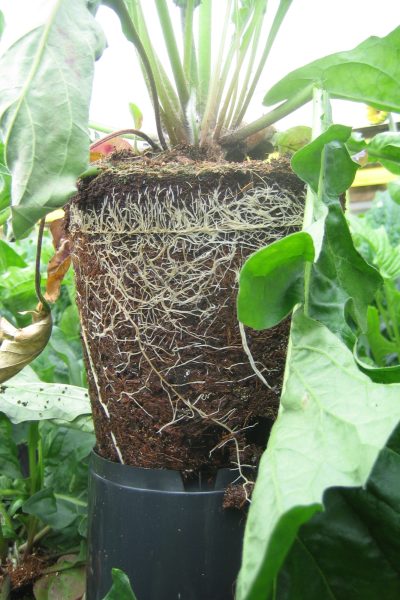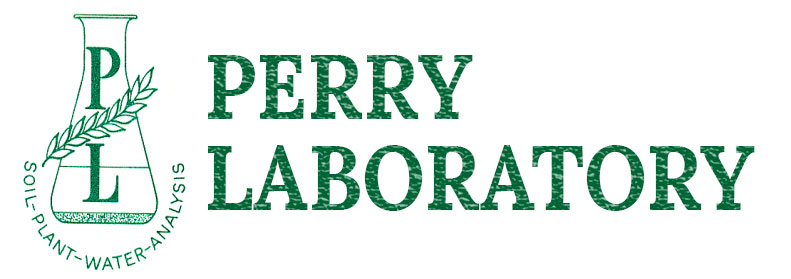Soil Sampling Procedures
SOIL
Sampling areas should be grouped according to some common denominator such as management zones, irrigation zones, soil types, plant types, plant varieties, topography, etc.
01
Sample
The sample should consist of a random composite sample of the sampling area.
If diagnosing a problem, the soil should be taken exclusively from the problem area(s).
02
Sampling instructions
Each sample submitted for testing should consist of soil taken from the root zone of the plants being grown from 5–6 different locations within the area to be tested.
Due to possible contamination, the surface 1–2” should not be included in the sample.
Any areas that are exhibiting problems or have been managed differently should be treated as separate sampling areas.
03
How to Label Samples
Each sample should be labeled on the OUTSIDE of the bag with the identification that will best identify it for your purposes. Please be brief in the labeling.
04
Sample volume & shipping
Each sample should consist of one quart or one liter of soil.
Samples should be shipped in plastic bags, such as zip-lock type bags, inside a mailing envelope or box.
Fill out the Horticultural
Submission Form
Please include the following information with your sample(s):
- Name
- Address and
- Phone number
- Email Address
- Planting Situation i.e. Established / New Garden, New Homesite
- Sample Identification
- Conventional or organic fertilizer recommendations
- Additional information about sample i.e.: any problems
Samples can be sent by US mail, UPS, FedEx or any other carrier to:
Perry Laboratory, LLC
424 Airport Boulevard
Watsonville, CA 95076
Samples may also be dropped off at the same location.
The lab is open from 8 to 5 pm Monday – Friday.
Please submit payment along with the sample(s). Payments can be made by check or if paid by credit card, please include card type, card number, expiration date and csv#.
If you have any questions, call (831) 722-7606
Considerations in Soil Sampling
- Schedule sampling for plant selection or construction
- Random composite samples for pre-planting or monitoring
- Sample specific areas for diagnosing problems
- One quart (liter) of soil per sample
- Label on the outside of a plastic, zip-lock type bag with indelible marker
- Provide as much information as possible

Water Sampling
- Water samples should be taken from a location that best represents the use of the water, such as from a hose, sprinkler or drip emitter.
- Use a clean plastic bottle, preferably one that has been previously used to store water. A drinking water bottle is suitable.
- Each water sample should consist of one quart or one liter, in a plastic bottle, filled completely.
- If the sample will be shipped to the laboratory, the bottle should be placed into a plastic bag to avoid leaking into the box. It sometimes helps to use some Teflon tape on the threads of the bottle to reduce the possibility of leakage.
- Please label the bottle with water-proof ink!! If the sample cannot be submitted within 24 hrs, refrigerate.
Plant Tissue Sampling
- For plant tissue analyses, a guide sheet is available for which part of the plant to sample for various horticultural plants. If the target plant is not on the list, collect leaves that are most recently matured, not very young or very old leaves, for the sample. If possible, both good and bad leaves should be submitted.
- A minimum of 100 grams of fresh tissue should be sent for each sample.
- Plant tissue samples should be collected into PAPER bags, labeled and shipped in theses paper bags. The paper bag will reduce the chance of decomposition and may be placed in a plastic bag if it will not be submitted to the lab the day of sampling.
- Label sample with as much information as possible, include plant management history.
- Plant tissue samples that will not immediately be shipped to the laboratory for analysis should either be dried at a maximum of 70°C or refrigerated until shipping. The quick drying or refrigerating serves to stop metabolic processes that may change the nutrient analysis of the tissue.
Complete Water or Fertilizer Analysis Package
W-1-R-
pH, Electrical Conductivity, calcium, magnesium, potassium, sodium, chloride
-
carbonate, bicarbonate, sulfate, nitrate nitrogen, ammonium nitrogen, phosphorous
-
boron, iron, manganese, zinc, copper, silicon, molybdenum
Choose a Testing Package
Download the Submission Form
Please fill out the form and include the following information with your sample:
- Name
- Address and phone number
- Email Address
- Planting Situation i.e. Established / New Garden, New Homesite
- Sample Identification
- Conventional or organic fertilizer recommendations
- Test Package
- Additional information about sample i.e.: any problems or concerns
